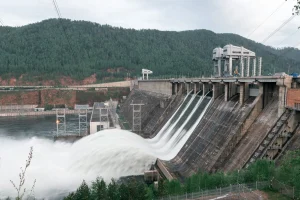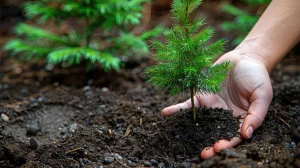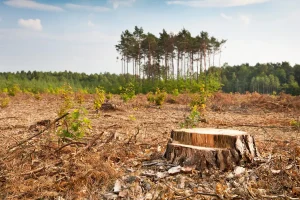Table of Contents
Have you ever wondered about the difference between waste and garbage, especially whether waste falls under the garbage category? Some people consider both similar, but in fact, both have distinct characteristics and impacts.
Let’s imagine the pile of garbage at home and smoke from a factory chimney. Both are waste, but one is from households and one from industrial processes.
To figure out more, this article discusses the basic difference between waste and garbage, from the definition, and types, and how important it is to know the difference. Thus, read the explanation below!
The Definition of Waste and Garbage
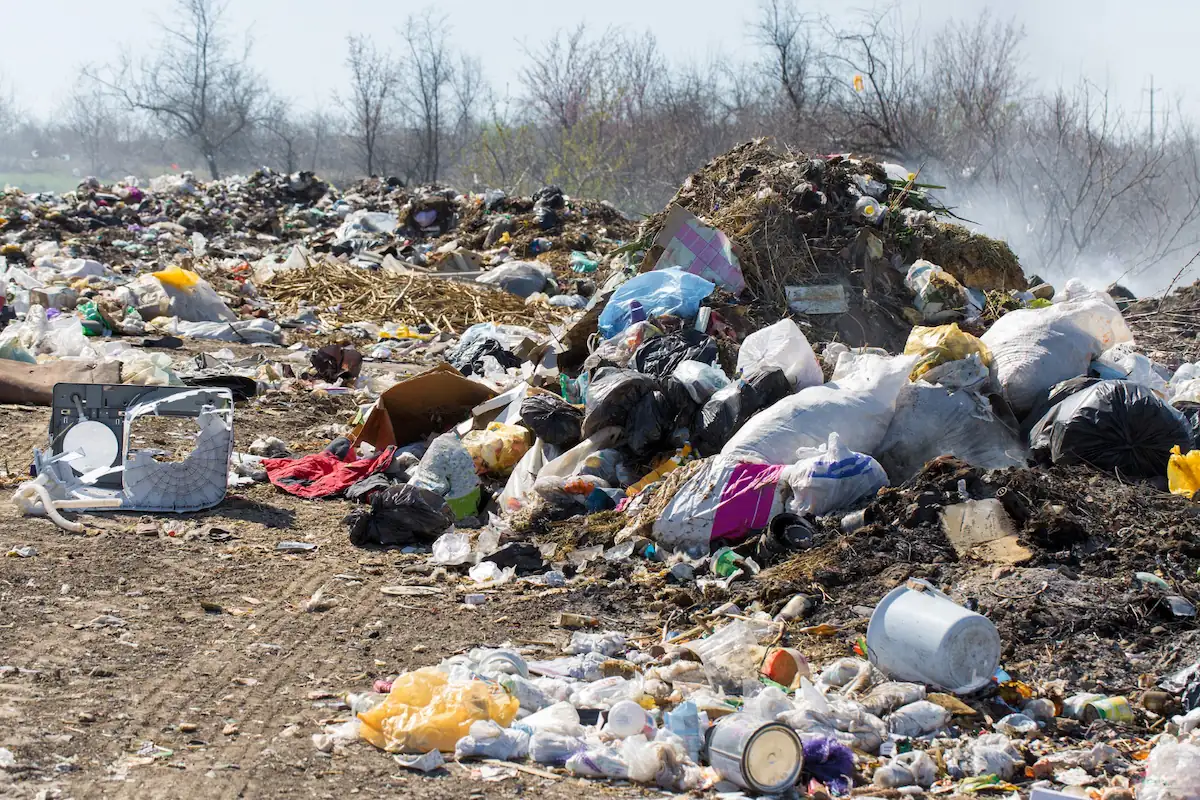
Generally, garbage is a scrap from humans’ daily activities or a solid natural process. Garbage can be from households, offices, markets, schools, and other activities.
On the other hand, waste is the residue of the production process in the industry or domestic ones with liquid, solid, or gas properties. Waste is usually categorized into industry or business.
Waste is often more hazardous than garbage because it contains dangerous substances that need certain management so that it does not pollute the environment.
Read also: Waste in Indonesia: A Statistics Everyone Should Know!
Examples of Waste and Garbage
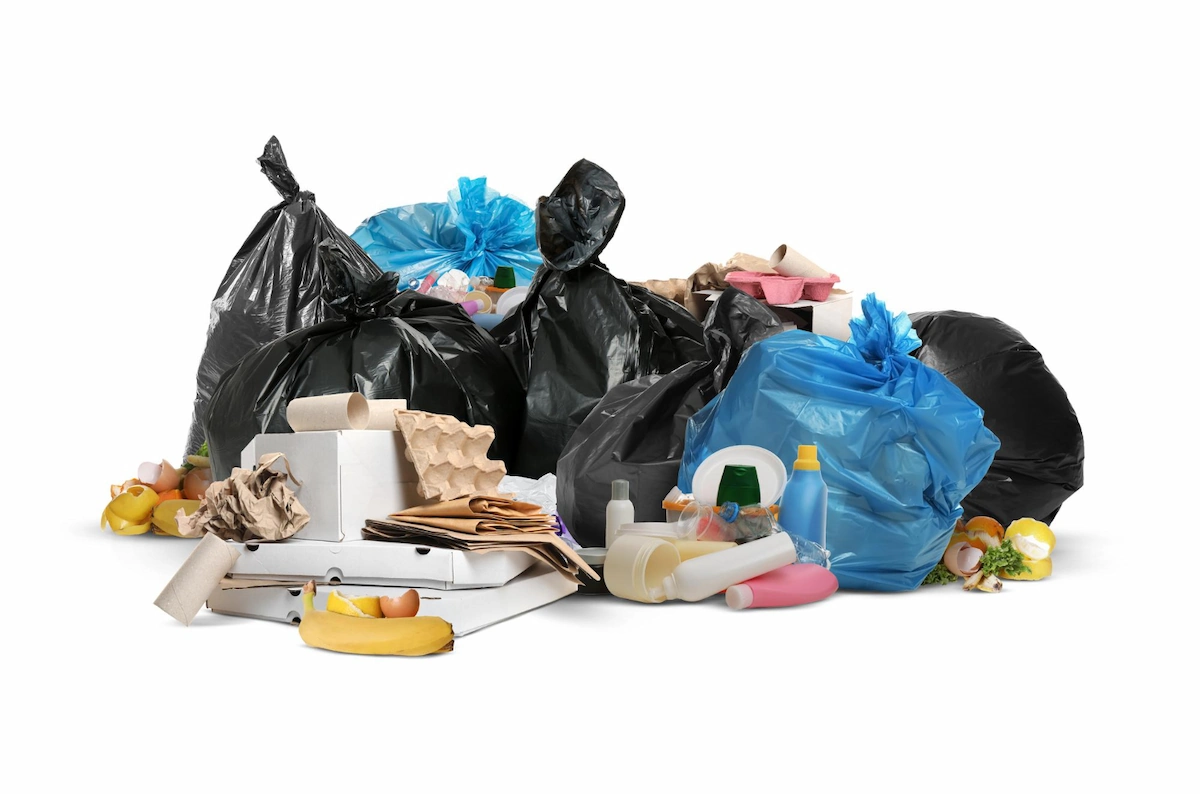
Below are some examples of waste and garbage that you often find around you:
Examples of Garbage
To get to know more about garbage and differ it from waste, below are some examples of garbage you usually find:
- Food scraps: Food scraps are from households, restaurants, and markets. Food scraps usually include fruit skin, bones, rice leftovers, and rotten vegetables.
- Plastic packaging: Plastic bags, plastic bottles, snack packaging, and other plastic packages.
- Used paper: Printed paper, used newspaper, box, and other paper packages.
- Used bottles and cans: Glass bottles, canned drinks, canned food, and other metal packages.
Examples of Waste
Now that you already know about the examples of garbage, you should also know the examples of waste:
- Industrial wastewater: Water contaminated by industrial processes, containing hazardous substances, chemicals, heavy metals, and other pollutants.
- Vehicle exhaust: Exhaust emissions from motor vehicles, such as carbon monoxide, hydrocarbons, and nitrogen oxides.
- Chemical residues: Chemical residues from laboratories, industry, or agricultural activities, such as pesticides and herbicides.
- Used oil and fuel: Used vehicle oil, used cooking oil, and other fuel residues.
What Is the Difference Between Waste and Garbage?
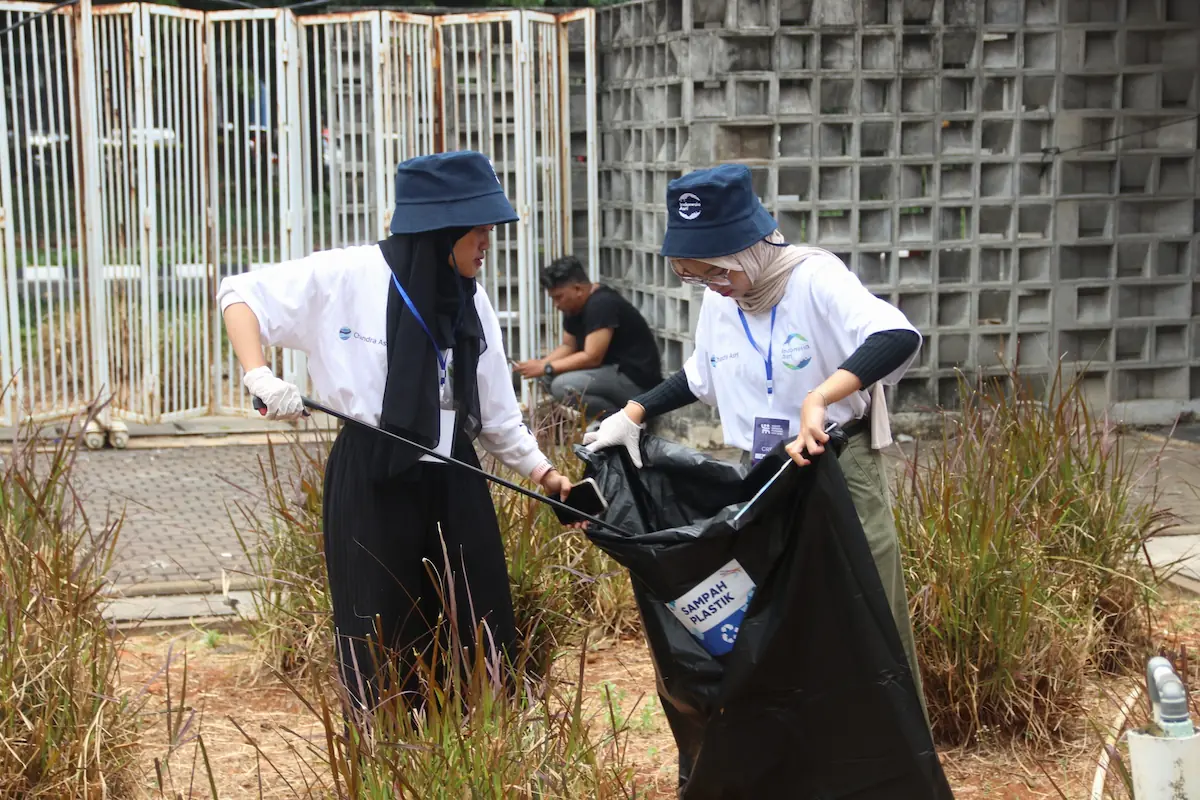
The difference between waste and garbage can be observed from various aspects. This dissimilarity is emphasized in Law Number 18 of 2008, about Trash Management iterates about processing and classification of scraps originating from daily activities including household, or commercial household-type trash, special areas, and social facilities.
On the other hand, Government Regulation Number 22 of 2021 about Hazardous Waste Management regulates waste based on the sources: community activities, industry, mining, and agriculture.
Besides, these differences underlie the origins and management methods which can be seen below:
1. Origins
Typically, garbage comes from households, offices, markets, and other activities. In contrast, waste comes from industry, manufacturing, agriculture, mining, and other business activities.
2. Shapes
Garbages are usually solid and identifiable, such as papers, plastics, and food waste. Otherwise, waste can be solid, liquid, and gas. Examples of liquid waste are plant wastewater, gas waste is factory smoke, and solid waste is leftover textile materials.
3. Management
Garbage management focuses on reducing, sorting, and disposing of to the landfills. In contrast, waste management is more complex and specific than garbage, especially for hazardous waste.
For that reason, the management must be proper, such as doing emission controls and waste treatment to prevent environmental pollution.
Regarding this, you can dispose of used cooking oil at the oil processing agency or desulfurization process for waste gas.
About used cooking oil, Chandra Asri Group also invests in the TUKR waste cooking oil collection unit, gathering the oil from hotels, partners, and restaurants in Indonesia to be processed in Biofront of Singapore.
Read also: Is Throwing Waste in the Bin Enough to Solve the Trash Problem?
4. Impacts on the Environment
Regarding impacts on the environment, waste and garbage have a different impact. If not managed properly, waste can cause soil and water pollution and produce unpleasant odors.
Conversely, the impact of waste is more serious, especially the hazardous one that can lead to poisoning, ecosystem damage, and long-term health problems.
Why Is It Crucial to Understand These Differences?
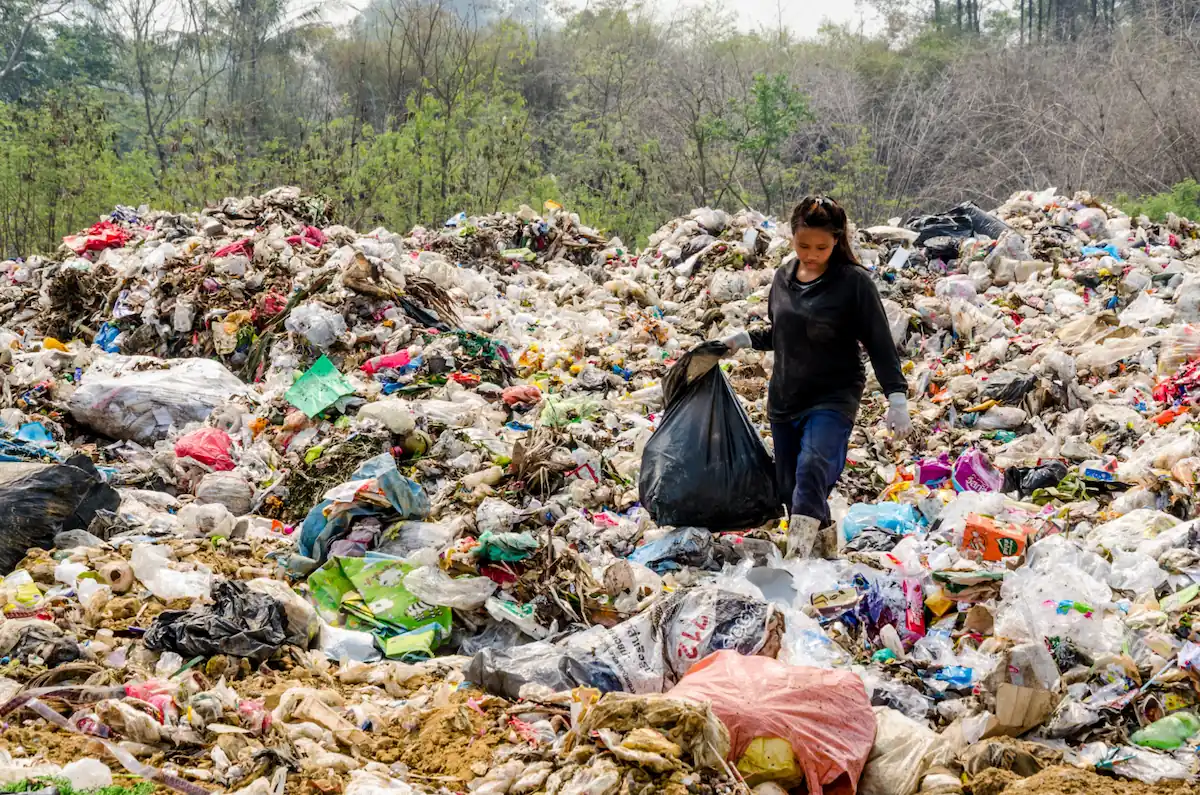
Understanding the difference between waste and garbage is important for some reasons Warga Asri should know.
Firstly, this understanding helps us to manage the waste properly. Waste and garbage have distinct characteristics and potential dangers, making them require different management methods.
Secondly, understanding the difference is crucial to complying with applicable laws and regulations, such as Article 18 paragraph (4) letter a of Government Regulation Number 81 of 2012 that mandates the supply of sufficient facilities for the first stage of garbage sorting, which involves separating waste into a minimum of five categories.
It is important to note that not all waste is garbage. The basic difference lies in the sources and characteristics of which waste has a wider scope and can be in solid, liquid, or gas form, and the majority of its origins come from industrial activities.
Those are the information about the difference between waste and garbage you should know. Garbage often originates from everyday activities and is solid, although garbage from commercial or industrial operations might be solid, liquid, or gaseous.
Answering “Is waste garbage?”, in general, waste has a wider scope than garbage because waste is associated with industrial and complex activities residue.
The community also plays a significant part in trash management and environmental preservation, as laws and regulations govern how it is handled.
Interested in preserving the environment and supporting better waste management? Let’s join Indonesia Asri and experience the benefits of being Warga Asri!
In Indonesia Asri, there are various environmental preservation actions you can join like #SiPalingSustainable contains many challenges in the form of simple actions for sustainable living. Interestingly, you can get prizes if you win the challenge!
Register yourself now and start small steps to manage waste for bigger changes!






